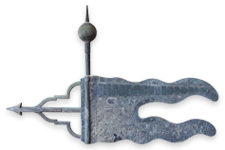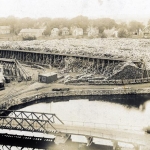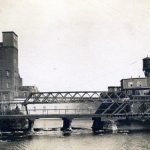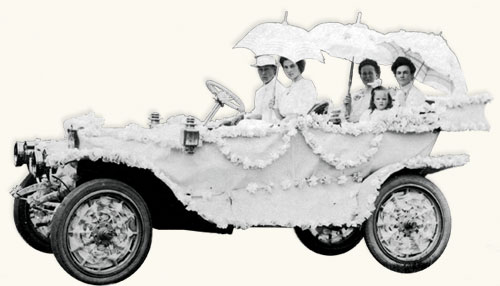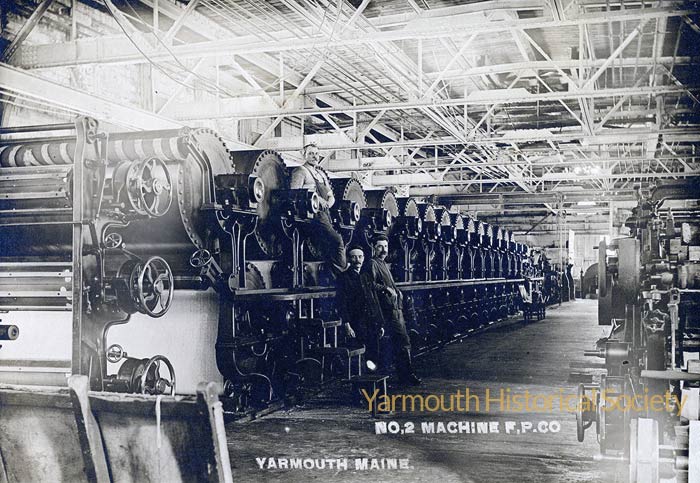
The Royal River has had a lasting impact on the community of Yarmouth. There are four falls along the river and the energy produced by them led to the development of the town. Grain, lumber, fulling mills were among the early types of mills found along the river. Later industries that utilized Yarmouth’s hydropower included a cotton mill specializing in seamless grain bags and Forest Paper Company, which produced high-quality soda pulp. At its industrial peak in the early 20th century, Yarmouth was a thriving mill town employing hundreds of workers in a variety of industries.
Click for larger image.
Papermaking started at the second falls in 1816 when William Hawes and the Cox brothers built their mill on Bridge Street. This mill lasted in various forms until about 1840. The familiar brick mill, known today as the Sparhawk Mill, was built in 1855, replacing an earlier structure that was damaged by fire. Operating under the name Royal River Manufacturing Company, this mill manufactured cotton yarn, cloth, and seamless grain bags. Production continued at the mill until 1951.
At the third falls, the Yarmouth Paper Company mill was built in 1864. In 1874, S.D. Warren and George W. Hammond bought the mill, renamed it the Forest Paper Company, and dramatically expanded operations. It became known worldwide for producing quality soda pulp for papermaking. Because of its great success, Forest Paper Company eventually expanded to cover over 10 acres with 10 brick buildings and numerous smoke stacks and chimneys. The mill closed in 1923 and burned in 1931. Today, Royal River Park contains some of the ruins of this enormous mill complex.
Weston’s Machine Shop and Hodsdon Shoe Company were among the many mills located at the fourth falls of the river. With the closing of the Forest Paper Company in 1923, Yarmouth suffered economic hardship that lingered until the 1950’s.
